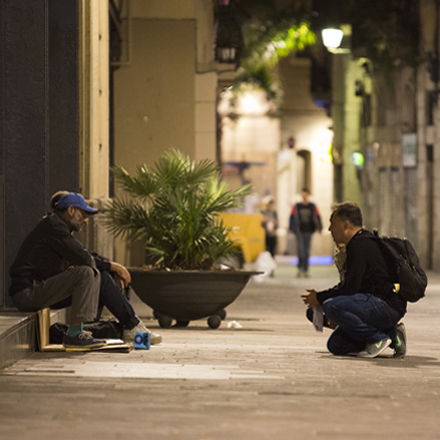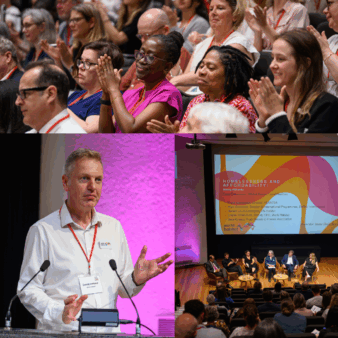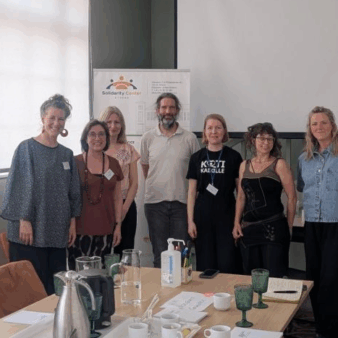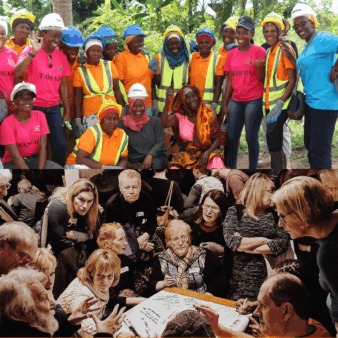
The European End Street Homelessness Campaign is a movement of cities that are working together to permanently house Europe’s most vulnerable people and end chronic street homelessness by 2020.
It was set up in 2015 by the Building and Social Housing Foundation (World Habitat) at a time when, despite numerous efforts by governments and charities/NGOs, homelessness – and in particular street homelessness – was increasing across Europe.
World Habitat believes the time has come to stop managing homelessness and start ending it. Inspired by the successful 100,000 Homes Campaign in the United States, over the last 18 months World Habitat has worked with different cities to adapt the model to a European context. These include Barcelona, London, and Valencia.
The European Campaign has achieved some early and inspirational successes:
- over 900 individuals who are homeless and sleeping on the streets participated in a survey that helped to identify their needs and aims to improve their access to housing
- over 1,000 local volunteers have taken part in night-time survey teams, demonstrating the commitment and concerns of local residents about those who are the most vulnerable in their communities
- the survey findings are being used to improve commissioner and charity strategies and services, and speed up access to housing for those individuals sleeping on our streets
The Campaign is now expanding to new cities and partners have recently joined from:
- Brussels (lead partner: Infirmiers de rue asbl – Straatverplegers vzw), where in excess of 400 people are already sleeping on the streets, and more women, families and young people join them each year.
- Budapest (lead partner: Habitat for Humanity Hungary), with hundreds of people on the city’s streets, some very visibly in the city centre, and others hidden in old buildings, woods and other locations.
- Glasgow (lead partner: Glasgow Homelessness Network), where street homelessness has increased by 60% since 2013, with approximately 1,000 people reporting that they slept rough during 2015-16.
- Torbay (lead partners: Torbay Council, Shekinah Mission, Westward Housing), where rough sleeping has increased dramatically – this reflects a national trend, but Torbay shows a higher percentage increase compared to England as a whole.
Isobel Ashford, Deputy Director of World Habitat, said: “The European End Street Homelessness Campaign is a unique collaboration of cities and towns and World Habitat looks forward to continuing to coordinate our collective efforts. Having all met up recently, I have been inspired by the dedication of everyone involved and their absolute determination to do something to bring about an end to the scandal of street homelessness, both in their own communities, and across Europe as well.”
Notes for Editors
For further information on the European campaign and the cities involved contact: Linda Butcher (linda.butcher@www.world-habitat.org) or Isobel Ashford (Isobel.ashford@www.world-habitat.org) at World Habitat or on +44 (0)1530 510444.
For further information on the campaign in Brussels contact: Laurène Laroche (laurene.laroche@idr-sv.org) at Infirmiers de rue asbl – Straatverplegers vzw.
For further information on the campaign in Glasgow contact: Claire Frew (cfrew@ghn.org.uk) at Glasgow Homelessness Network.
About World Habitat: Founded in 1976 Building and Social Housing Foundation is a catalyst for change. It identifies great ideas and the best housing practice from around the world and seeks to transfer those ideas and practices to places where they are needed most. It runs the World Habitat Awards and programmes to promote community-led housing and end street homelessness. Visit: www.world-habitat.org.
About the campaign: Find out more about the European End Street Homelessness Campaign on the World Habitat website at: www.world-habitat.org/our-programmes/the-campaign-so-far. A summary of the external evaluation report about the campaign is available here.
Image credit: Juan Lemus




Join the discussion